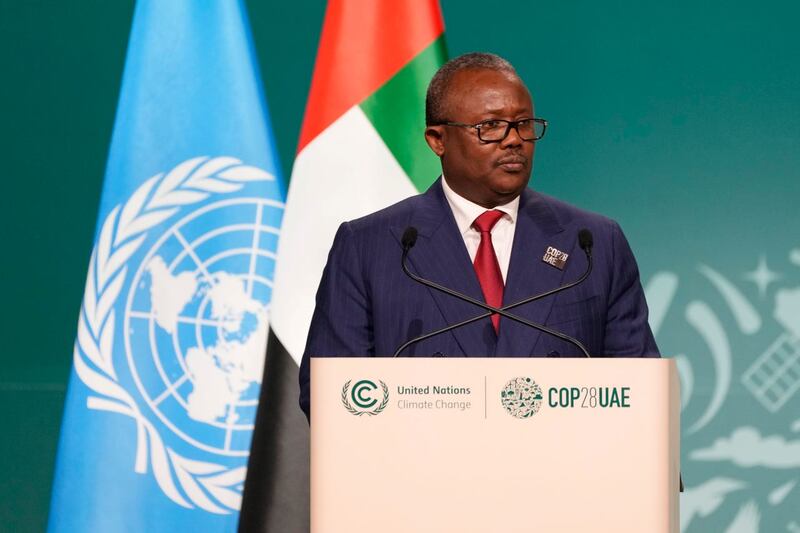Guinea-Bissau’s president has dissolved the West African nation’s parliament after what the government said was a failed coup.
A decree issued by President Umaro Sissoco Embalo on Monday cited a shootout in the capital, Bissau, last week.
“The date for holding the next legislative elections will be set in due time in accordance with the provisions of the Constitution,” the decree stated.
“This Presidential Decree comes into force immediately.”
The order referred to the “seriousness” of the shootout between members of the Presidential Palace Battalion and the National Guard which started when the former tried to rearrest two ministers released from custody while being investigated for alleged corruption.
It is the second time in less than two years that Mr Embalo has dissolved parliament – three months after surviving a coup attempt in February, he dissolved parliament, citing “unresolvable differences” with the legislature.
The foiled coup is the fourth attempted or successful military takeover of power in West and Central Africa in the last six months, following last week’s “failed coup” in Sierra Leone.
It further raises tensions in the once-politically stable region where coups have surged with eight military takeovers since 2020.

Guinea-Bissau’s semi-presidential system limits the president’s powers by allowing the majority party in the parliament to appoint the Cabinet. As a result, the National Guard – which comes under the Interior Ministry – is largely controlled by the opposition-dominated parliament.
Mr Embalo, a former army general, was declared the winner of a December 2019 run-off presidential election which his opponent contested.
Tensions have remained between him and a coalition of opposition groups that won the majority in Guinea-Bissau’s parliament in June when the parliament was reconstituted.
Last week’s shooting incident, which lasted from Thursday night till Friday morning, happened while the president was attending the UN’s Cop28 climate summit in Dubai.
Upon his return, he dismissed Victor Tchongo, the head of the National Guard, who he said was not acting alone in asking members of the guard to release the officials.
The bid to release the officials – Economy and Finance Minister Suleimane Seidi and Treasury Secretary Antonio Monteiro – “clearly revealed the complicity of grand corruption with certain political interests” and sows “strong evidence of political complicit,”, President Embalo said in the decree.
“The National People’s Assembly, instead of fighting for the rigorous application of the Budget Execution Law and exercising their role in the supervision of the Government’s acts, preferred to defend members of the Executive suspected of involvement in the … acts of corruption that seriously harmed the highest interests of the State,” he added.
Since gaining independence from Portugal in 1974, the country of two million people which borders coup-hit Guinea, has endured continued political turmoil, experiencing four coups and more than a dozen attempted coups.



